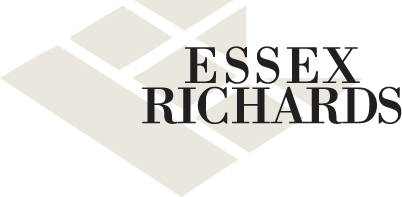By: Heather Culp
If you’re among the 43.8 million federal student loan borrowers who owe student loans, or care about someone who owes, you know that student loans have been in the news almost constantly since the White House announced in August 2022 the Biden-Harris student loan debt relief plan. You probably also know that the fate of the proposal to cancel up to $20,000 of certain borrowers’ federal student loan rests in the hands of the United States Supreme Court. The Court is expected to issue its decision the two cases by the end of June.
But there is much, much more student loan news. A lot has changed over the last year. Much of the relief is temporary and set to expire within the next year or so. I have attended 17 hours of student loan law legal training this year. I’m excited to share what I’ve learned and help people who live in North Carolina and need or want help with their student loan debt. I’ll be sharing what I’ve learned through a recurring series of articles that Essex Richards will share online. Here is the first article in the series; please contact me if you have any questions or want to schedule a consultation.
Student loans: Are yours federal, private or state, and how do you find this information?
The Three Types of Student Loans
A Federal (or government) student loan is money loaned by the United States government to help pay for the cost of education or money loaned by a third party for this purpose, the repayment of which the United States government guarantees.
- Direct (or Stafford) Loans, PLUS Loans (loans for parents and graduate and professional students), Perkins Loans and Consolidation Loans are the kinds of student loans that the United States makes itself.
- FFEL Loans were student loans made by private companies and states to pay for higher education, subsidized and guaranteed by the United States government. The Federal Family Education Loan Program ended on June 30, 2012. “Subsidized and guaranteed” means that if the borrower defaults on the loan (doesn’t pay the loan consistent with the loan terms – i.e., pays late or doesn’t pay), the federal government would provide certain relief to the lender. In the first quarter of 2023, 8.8 million borrowers owed $198.6 billion in FFEL Loans.
- HEAL Loans were student loans made by private companies to pay for eligible graduate students to attend certain health-related schools and programs. The Health Education Assistance Loan Program ended on September 30, 1998. It is time-consuming to find current statistics on HEAL Loans. As of December 31, 2016, 11,390 borrowers owed $187 million in HEAL Loans.
A private student loan is money loaned by a private creditor to help pay for the cost of education or to refinance loans used to pay for the cost of education. The U.S. government is not involved. Discover Bank, SoFi (Social Finance), PNC Bank, Sallie Mae, and Citizens Bank are big players in the private student loan market.
A state student loan is money loaned by a state to help pay for the cost of education while attending school within the state. The North Carolina State Education Assistance Authority finances and offers student loans to North Carolinians and students pursuing higher education at a North Carolina college or university.
Knowing the type of student loan you have is the key to figuring out what relief, if any, pay be available to you. You can find out what kind of student loan debt you have by:
- Looking at your loan paperwork, if you kept it. See who the lender is.
- Set up an account at the National Student Loan Data System (NSLDS). This is a national database of information about all federal student loans that have been awarded. Go to the “My Loan Servicers” section. If your servicer name starts with DEPT OF ED, it is a federal student loan held by the U.S. Department of Education – it’s a federal student loan. If there is nothing in the database about your loan, you have a private or state student loan.
- Check your credit report. If you have a private or state student loan, it should be listed on your credit report. You can pull your credit report once a year for free at www.annualcreditreport.com if you do not already have access to your credit reports through a service like Credit Karma or as part of your banking relationship.
My next article will explain why the type of loan you have matters.
Disclaimer: We are attorneys, but we are not your attorneys and this article does not create an attorney-client relationship. The information in this blog post is provided for general information purposes only, and may not reflect the current law in your jurisdiction. No information in this blog post should be construed or seen as legal advice, nor is it intended to be a substitute for legal counsel on any subject matter. For more information about how these laws affect you in North Carolina, please contact us at 704-377-4300.

